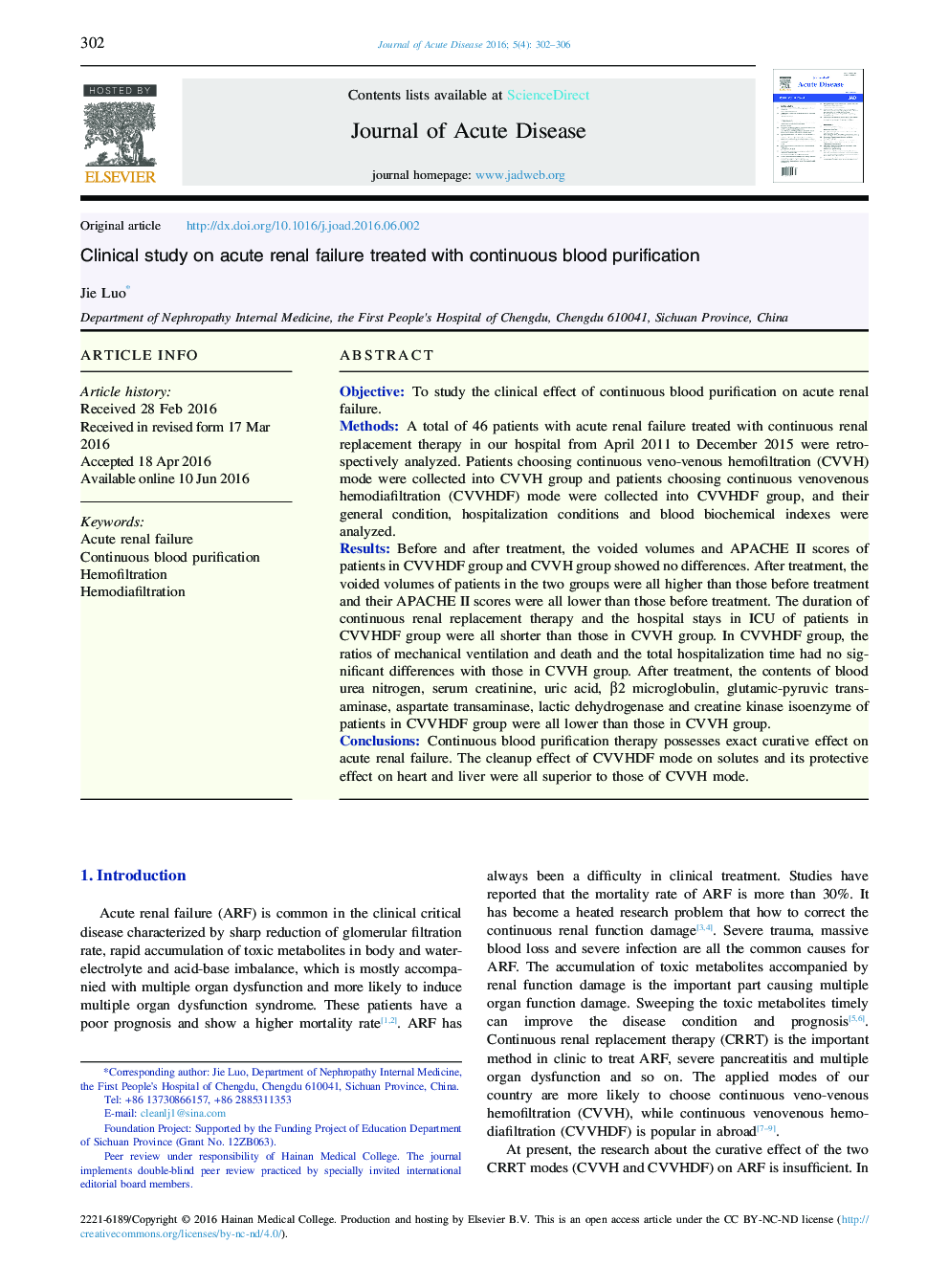| Article ID | Journal | Published Year | Pages | File Type |
|---|---|---|---|---|
| 3475075 | Journal of Acute Disease | 2016 | 5 Pages |
ObjectiveTo study the clinical effect of continuous blood purification on acute renal failure.MethodsA total of 46 patients with acute renal failure treated with continuous renal replacement therapy in our hospital from April 2011 to December 2015 were retrospectively analyzed. Patients choosing continuous veno-venous hemofiltration (CVVH) mode were collected into CVVH group and patients choosing continuous venovenous hemodiafiltration (CVVHDF) mode were collected into CVVHDF group, and their general condition, hospitalization conditions and blood biochemical indexes were analyzed.ResultsBefore and after treatment, the voided volumes and APACHE II scores of patients in CVVHDF group and CVVH group showed no differences. After treatment, the voided volumes of patients in the two groups were all higher than those before treatment and their APACHE II scores were all lower than those before treatment. The duration of continuous renal replacement therapy and the hospital stays in ICU of patients in CVVHDF group were all shorter than those in CVVH group. In CVVHDF group, the ratios of mechanical ventilation and death and the total hospitalization time had no significant differences with those in CVVH group. After treatment, the contents of blood urea nitrogen, serum creatinine, uric acid, β2 microglobulin, glutamic-pyruvic transaminase, aspartate transaminase, lactic dehydrogenase and creatine kinase isoenzyme of patients in CVVHDF group were all lower than those in CVVH group.ConclusionsContinuous blood purification therapy possesses exact curative effect on acute renal failure. The cleanup effect of CVVHDF mode on solutes and its protective effect on heart and liver were all superior to those of CVVH mode.
